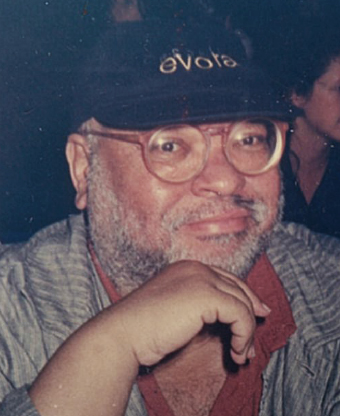NEWSLETTER
|
A Passionate Advocate For Afro-Brazilian Rights
By Rebecca Reichmann Tavares
As the authoritarian government ceded military power to civilian democracy, Michael was witness to the flowering of civil society, including the emergence and organizing of Afro-Brazilian movement groups that had survived underground for years. Many of these groups had formed under the auspices of Afro-Brazilian cultural research and advancement, an angle on the Afro-Brazilian experience that was officially sanctioned within the hegemonic Brazilian ideology of “racial democracy”.
In this context, when “racism” was still a dangerous epithet, Michael sought out and supported efforts to recognize and celebrate the experience and contributions of Afro- Brazilians. His actions, under the leadership of the Foundation’s then-president Franklin Thomas, were totally new to Ford’s agenda in Brazil.
During this period, the Foundation provided support to several Afro-Brazilian grassroots NGOs, including the Institute for Research on Black Culture (IPCN), led by Januario Garcia and Julio Tavares; to university-based research programs on Afro-Brazilian culture and religion in Bahia and Rio de Janeiro; and to leading Afro-Brazilian artists and cultural activists, including Zozimo Bulbul, Zeze Motta and Ruth de Souza.
Michael worked with such renowned Afro- Brazilian figures as Senator and Professor Abdias Nascimento, Helena Teodoro, Joel Rufino dos Santos, Helio Santos, Diva Moreira, Lelia Gonzalez and many others.
Michael mused about the thorny reactions to his work with the Foundation of that period in Corinne Lennox’s chapter “The Role of International Actors in Norm Emergence: Supporting Afro-Descendants’ Rights in Latin America” in the book International Approaches to Governing Ethnic Diversity. “I was under pressure,” he said, “from both the white academic community and the Brazilian Foreign Ministry to stop ‘wasting the Foundation’s money with this Afro-Brazilian stuff I was doing’.”
Michael persisted, even after leaving the Foundation to return to academia, as the agendas of Brazilian academics and policy makers began to take more seriously the challenges of racial discrimination and inequality.
A decade later, Michael was a key consultant to the Ford Foundation-supported Comparative Race Relations Initiative led by Lynn Walker Huntley, Ford’s former Vice President for Rights and Social Justice and, after leaving the Foundation, President of the Southern Education Foundation. The project examined the social construction of race in South Africa, the United States and Brazil and proposed policies to address racial and intersecting mechanisms of discrimination and exclusion.
Michael’s academic and policy work subsequent to his years at the Foundation continued to reflect his lifelong commitment to justice for people of African descent and for Africans. In addition to his work at the Foundation, his teaching and his pivotal work in co-founding the Global Afro Latino and Caribbean Initiative (GALCI), Michael spent many years in Africa, including stints as loan officer for Togo at the World Bank (1986-7); project consultant for United Support of Artists for Africa (“We Are the World”) in Mali, Burkina Faso, Ethiopia, Angola and Mozambique; and as democracy/governance consultant for the U.S. Agency for International Development (USAID) in Mozambique (1992), where he managed the Democratic Initiatives Project that supported the 1994 democratic multiparty electoral process in Mozambique. He later served as a United Nations Development Program (UNDP)
consultant in Mozambique.
As a result of Michael’s early leadership, the Ford Foundation has established lasting partnerships with Brazilians engaged in the ongoing battle to combat racial and other forms of inequality in Brazil.
I followed Michael at the Foundation’s Brazil office, in 1988, and discovered the groundwork of solidarity Michael had built by recognizing the voices and leadership of Brazil’s most excluded citizens. Michael’s most important legacy will be his courage and tenacity in placing Afro-Brazilian and Afro-Latino realities onto philanthropic, academic and policy agendas, at a time when it was considered too politically sensitive.
In the wake of his passing, many of Michael’s friends, colleagues, and fellow activists in Brazil have shared tributes on social media to Michael’s intellect, his acerbic wit, breadth of historical perspective and impressive global rolodex. The following are just a few excerpts:
Julio Tavares (professor at Federal Fluminense University): “Michael was beloved, a person with a rare kindness found among academics. He was a dedicated analyst of Brazilian racism and a permanent partner of Afro Brazilians of my generation.”
Joao Jorge Rodrigues (founder of Olodum): “…a huge loss of a friend and brother.”
Helena Theodoro (cultural activist): “Michael was a great soldier in our struggle against racism in Brazil. He was a source of energy, supporting the study of Afro Brazilian religions in the country.”
Antonio Carlos Arruda (lawyer, activist): “Michael was a big person, very important for our partnership with the north American black movement.”
Paulo Roberto Dos Santos (Afro-Brazilian Activist): “Michael was a dedicated friend of our cause. To Michael, we owe so much.”
Helio Santos (professor): “Michael Turner’s work in the ‘years of lead’ (a phrase that refers to the country’s authoritarian period) were decisive for the advance of Blacks in Brazil. Always warm, he was an Afro-American who was Afro-Brazilian at heart.”
Diva Moreira (professor and Afro-Brazilian Women’s Movement activist): “Michael was a constructor of networks before the internet. May all the spiritual forces welcome your powerful soul!”
Rebecca Reichmann Tavares is the representative for India, Bhutan, the Maldives and Sri Lanka of UN Women, the United Nation’s Entity for Gender Equality and the Empowerment of Women program. She was a program officer in the Ford Foundation’s Brazil office from 1988 to 1993.
______________________
The other articles that deal with Latin America:
By Jeffrey Puryear
By Peter S. Cleaves and Richard W. Dye
|


